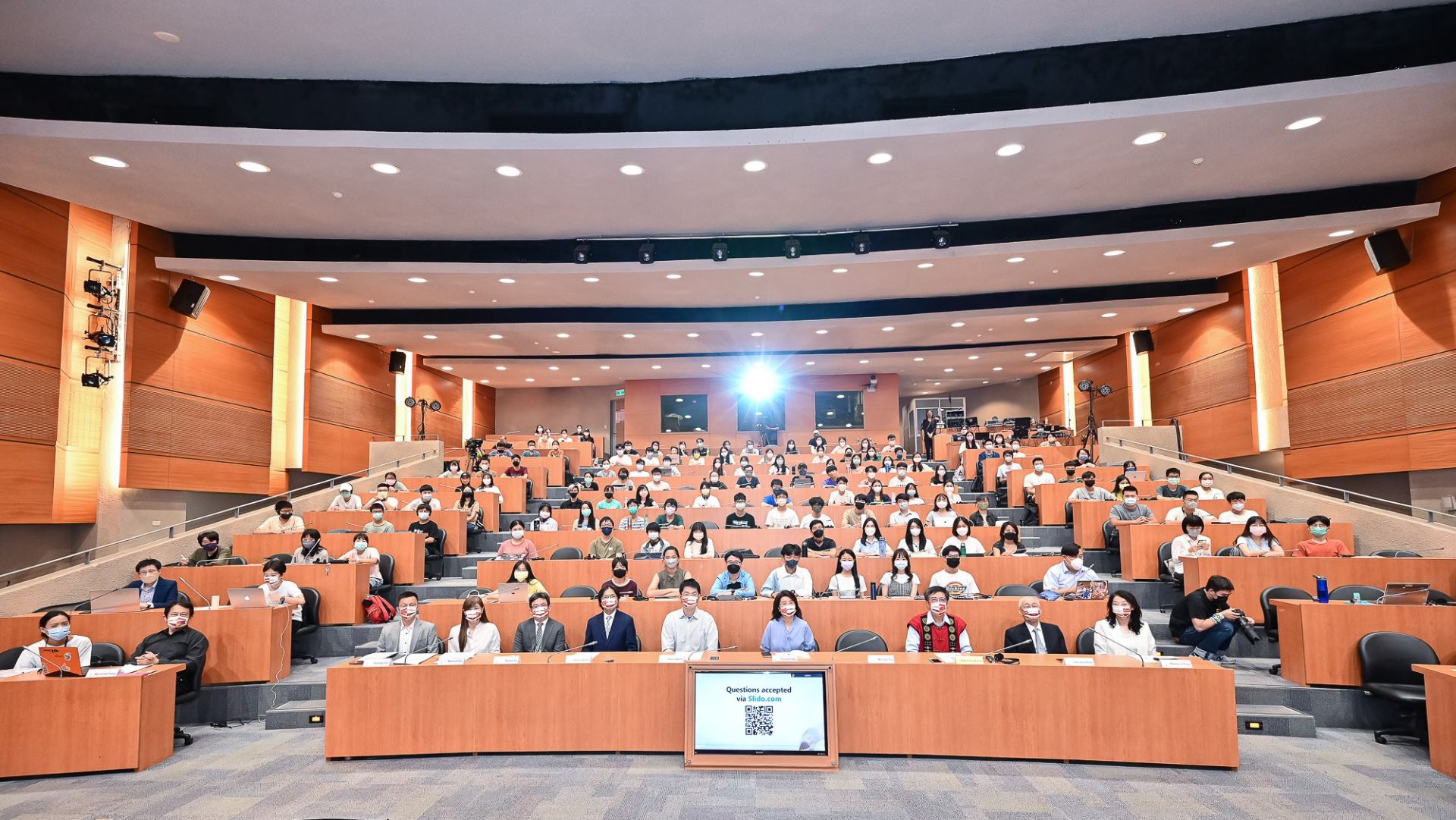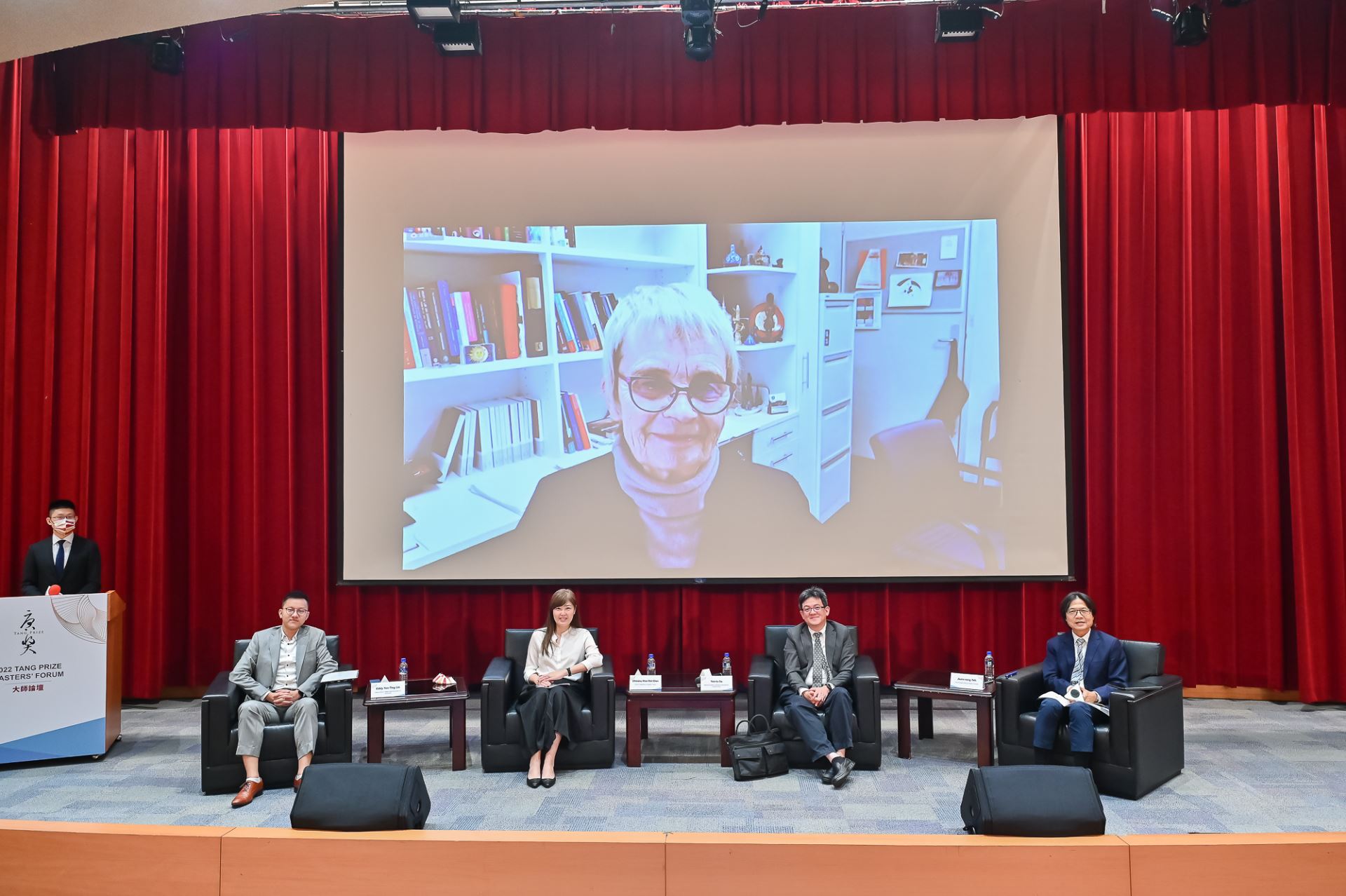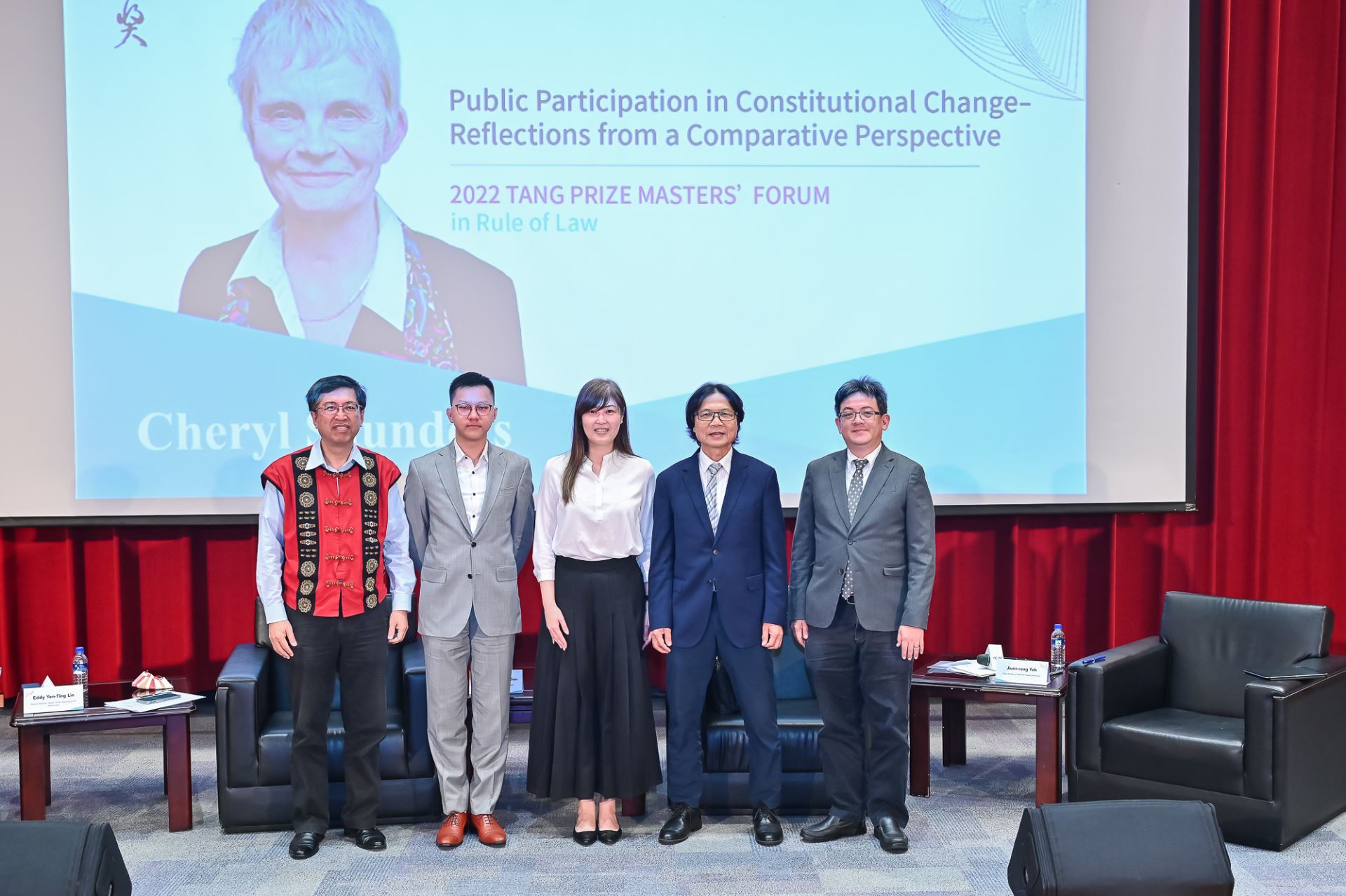2022-9-22

The Tang Prize Foundation held its’ first 2022 Masters’ Forum on September 19 at National Taiwan University, where Rule of Law laureate Professor Cheryl Saunders exchanged views with representatives from non-governmental organizations and advocates for social initiatives in Taiwan on the theme of “Public Participation in Constitutional Change—Reflections from a Comparative Perspective.” Professor Saunders presented to the audience an extensive exploration of various facets of public participation in theory and practice. When responding to questions from the audience, she expressed optimism about the referendum to be held toward the end of the year in Taiwan on whether to lower the voting age to 18. She believes that the passing of this referendum would have far-reaching consequences. It would encourage the younger generation to be more passionate about constitutional reform. In addition, the government and political parties would be urged to show more support for public participation, such as referendums. It could also help foster a more engaging legal culture.
The forum featured Chair Professor Jiunn-Rong Yeh of National Taiwan University as the moderator and Deputy Director of Taiwan Youth Association for Democracy Mr. Yen-Ting Lin, Director of the Awakening Foundation Ms. Wen-Wei Chen, and Research Professor at Academia Sinica’s Institutum Jurisprudentiae Mr. Yen- Tu Su as panelists.

Professor Yeh noted that enacting a constitution is a matter of great value to every society, more so to Taiwan, in terms of how to respond to current challenges and make necessary changes in order to create a better future. Professor Saunders is not only a pioneer in comparative constitutional law but also an academic practitioner who has helped advance many constitution-building agendas. She travels extensively and has made substantial contributions to the constitutional development in especially the Asia-Pacific, where many working in the field of law have been deeply inspired by her knowledge and patience she showed toward people she engaged with.
On November 26, 2022, a referendum will be conducted in Taiwan to decide whether the eligibility age for the exercise of the voting right should be lowered to 18, a significant moment in Taiwan’s constitutional history that is also highly relevant to the forum participants’ discussions about the role public participation plays in constitutional change. Professor Saunders’s abiding interest in comparative constitutional law has long been directing her attention to constitutional development in different parts of the world. She considers public involvement an essential part in any constitutional change and referendum is one of the ways it can be realized. Referring to instances of public participation taking place lately, Professor Saunders offered a panoply of case studies for the audience to ponder over. They included: a new draft of constitution rejected at a referendum by a majority of Chileans; a pending referendum in Australia to enshrine indigenous voices in the country’s parliament; and recent court decision in Kenya that invalidated the proposed constitutional change, known as the Building Bridges Initiatives (BBI), on procedural grounds. These examples reflect the importance of public participation for major constitutional reforms. Moreover, by investigating these cases, Professor Saunders has been able to list different forms of public participation, assess reasons behind the choice between direct and representative democracy, evaluate the influence of globalization, and point out various issues and debates surrounding the theory and practice of referendums. These are also problems facing many countries experiencing constitutional change at the moment.

Representatives from two of Taiwan’s NGOs also shared with audience their experience of public participation. Mr. Yen-Ting Lin, who has been campaigning vigorously for the lowering of the voting age to 18, reminded the audience that at the end of March 2022, hundreds of high school students gathered outside Taiwan’s Legislative Yuan to demand lowering the voting age. Though it seemed their voices were not heard by many at the time, their demonstration contributed in a meaningful way to the eventual approval of the bill for this referendum. It proved that public participation can be powerful. As a matter of fact, some NGOs started promoting this cause as early as 2014, but numerous obstacles have stymied their endeavors until now. We can therefore conclude that to push for constitutional reform via public participation could be a daunting task. Ms. Wen-Wei Chen, who has been pushing for greater gender equality through constitutional litigation for many years, said that even though the government seemed to endorse many of NGOs’ initiative, when taking a closer look, we can see that very few justices actually took NGOs’ opinions into serious consideration. However, the promotion of gender equality still relies heavily on constitutional litigation. Granted, referendums are a means to effect constitutional change, but efforts to achieve more genuine gender quality have been repeatedly thwarted for various reasons. By contrast, three anti-gay referendum proposals put forward by an anti-same-sex marriage group secured more than 7 million favorable votes in 2018. This incident further awakened Taiwan’s NGOs to the importance of public participation and dialogues with people of different views. From a theoretical perspective, Mr. Yen- Tu Su asked if the threshold set for constitutional amendment in 2015 was too high. He then talked about why it is essential to have constitutional amendment and to communicate with people from a diversity of background. While it would not be easy for a referendum on a single issue to be passed, Mr. Su believes that if the one attempted in Taiwan this November can succeed, it will give NGOs more leverage to put pressure on main political parties to introduce more bills for constitutional reform in the future.
It is hoped that through the examination of theses constitutional events, students in the audience can broaden their horizons, study from a wider perspective referendums conducted in different contexts, on different issues, and leading to different outcomes, analyze the impact public participation has on constitutional reform, and have a deeper understanding of the implication of the referendum due near the end of the year in Taiwan.
The 2022 Tang Prize in Rule of Law was awarded to Professor Cheryl Saunders for “her pioneering contributions to comparative constitutional law, an in particular her work on constitution-building in Asia- Pacific region, by applying her scholarship to inspire and advise constitution-making exercises, often under challenging circumstances, and by consistently broadening the boundaries of comparative constitutional law scholarship through active engagement, dialogue and collaboration with scholars and political actors at home and abroad.”
To watch the forum again, click here.
Article and photos courtesy of Tang Prize Foundation





